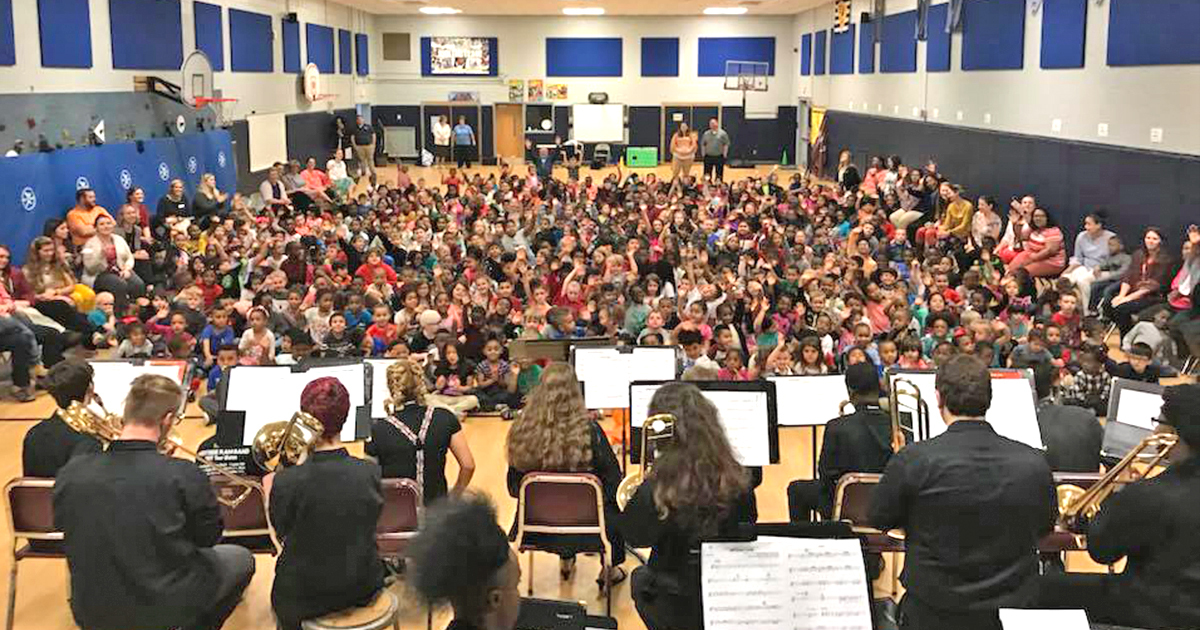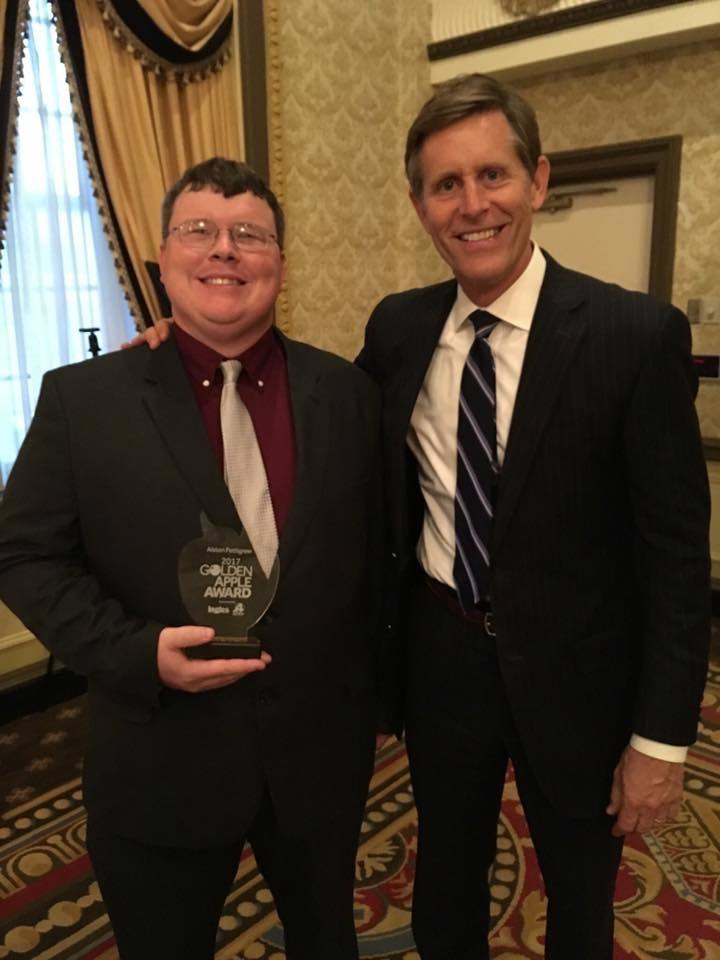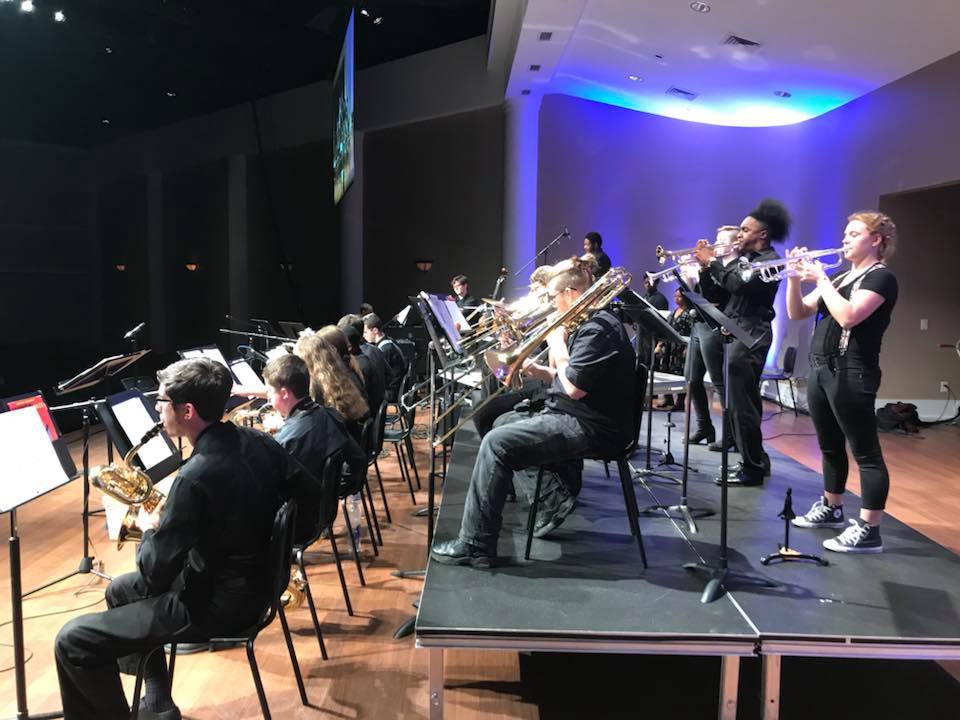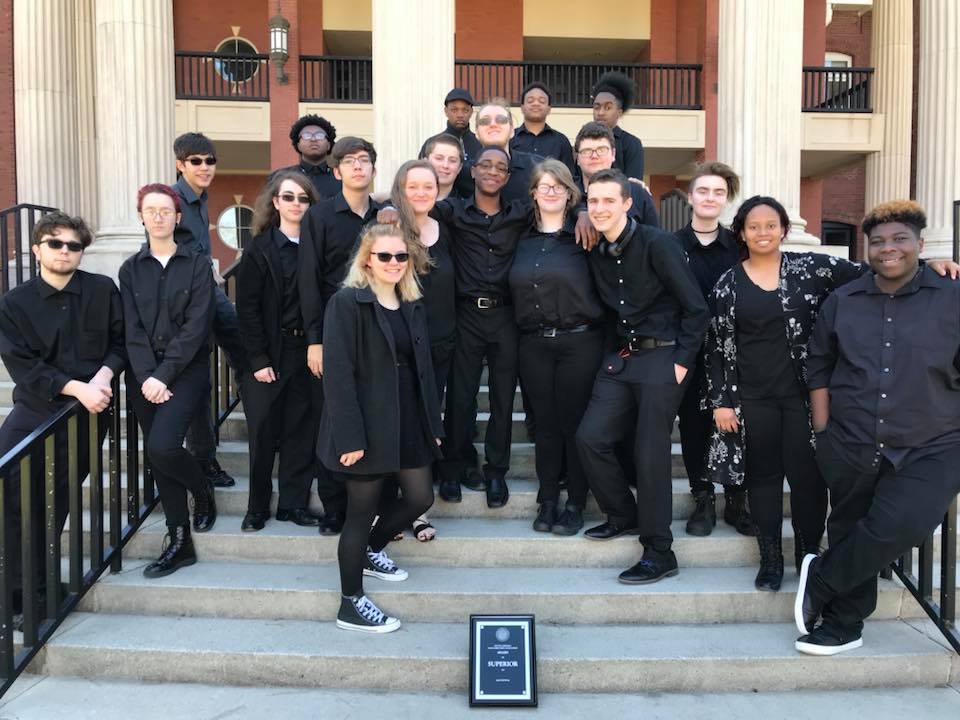Why Exposing Your Students to Both Classical and Jazz Genres Early On Matters
An interview with Band Director Robert Pettigrew
Date Posted: January 23, 2019

Where and what grade levels do you teach?
I am in my second year of teaching at Westside High School in Anderson, SC. Before I came here I spent six years teaching at Palmetto High School just up the road in Williamston, SC. In both situations, I spend most of my day working with high school students, so grades 9 – 12, but we also encourage our middle school students to participate in our afterschool ensembles like Jazz Band, Percussion Ensemble, and Marching Band.
How long have you been a band director?
I started teaching high school band straight out of college in 2011. I am now working on my 8th year of teaching.
What is your teaching philosophy when approaching high school clarinet and saxophone?
My teaching philosophy when approaching these instruments is based on the diversity of the instrument. As a saxophone player, I believe that it is important to provide our students with exposure to both classical and jazz literature. I believe it was Branford Marsalis that said that both of these genres require a different skill set that almost requires you to become two different people. In a lot of ways, that is true. When I came through high school, our program was heavily based on jazz performances. I believe that this hindered me when I had to switch to classical literature in college. I had to ‘become another person’ as my tone had to switch from a bright, funk to a dark, rich type sound. As a high school educator, I talk to my students about how we must constantly listen to our sound in reference to what we are playing. As they continue to learn how to switch back and forth between styles, their approach to the instrument changes for the better. While I know much of my answer to your question is based around saxophone, clarinet shares many similarities in regards to the approach. Due to the age and history of the clarinet, many of our students must be versed in the style of different musical eras. While this premise may be advanced for some high school level players, it never hurts to plant that seed in those students would possibly pursue a career in music.
"...I believe that it is important to provide our students with exposure to both classical and jazz literature." - Robert Pettigrew
What is your impression of JUNO reeds? Have you tried them and if so, what do you think?
Since my main instrument is a woodwind, I have spent a lot of time playing through a variety of reeds. While I personally play mostly on Vandoren Java’s, I found that the JUNO series of reeds is a great option for beginner to intermediate level players. Remembering back to when I started playing, which was the early 2000s, there weren’t a lot of options for the beginning player. With the introduction of these reeds into the market, we are able to see increased quality at a reasonable price for parents of these beginners.

Robert Pettigrew (left)
What is the greatest challenge you face as a band director and how do you address it?
I think the greatest challenge I face as a band director is one that most of us do: Funding. While the district I work in provides with total funding for repairs and transportation, my colleagues and I must rely heavily on fundraising to get our programs off the ground. As my school is in a lower income area, fundraising becomes hard due to the number of programs we compete with for community funds. However, I know I am more blessed than some, so we work hard on raising the money where we can to provide our students with access to materials and program opportunities.
What are some method books you would recommend to your students?
I was raised on the Essential Elements series when I was in middle school, so that series holds a place in my library due to experience. For my High School groups, I have adopted the Habits of a Successful Musician series. We use this method book every day for technique, balance, choral studies, scales, you name it. Outside of these type of ensemble method books, I keep a library of specific instrument method books that my students can check out to work on at home or in the lessons I provide here at school. To play off of your earlier question, my Clarinet players work through the Rose etudes and my saxophone players play through the Ferling Studies. Outside of those, we do a lot of work in the Rubank Series.

What can be done to encourage students to continue with the band as they transition from middle to high school?
I have found that retention from middle school to high school is most efficient when the following things occur.
- A relationship must be made between the high school director and the middle school student. To this day I remember how excited I was when the high school director came over to the middle school to talk with us. He started all the way down in 6th-grade making appearances and bringing candy, or other small items, to give to us. I know it must sound silly, but that worked for my group in getting us to the high school.
- The middle school students must be made aware of the opportunities found at the high school level. When I speak with my feeder schools I make sure that the students understand that all the work they have put in these past three years at middle school really pays off with the performance opportunities offered at the high school level. In my case, we are blessed with a pretty solid jazz group that plays throughout the state. As a result, I talk about how this group gets to go on trips to perform and how much fun they have. It always helps to bring a few students along with you to “back up” your story.
- There must be continuity between the middle and high school programs. One of the issues I have seen with retention has to do with the actual transition to high school. If continuity exists between the programs, the negative effects of this type of transition can be greatly reduced.
"The middle school students must be made aware of the opportunities found at the high school level." - Robert Pettigrew
What makes you proud about your band program?
There are a lot of things I have been proud about over my career in music education. At Palmetto, my proudest moments were when qualified the marching band for state for the first time in 15 years and when our winterguard won their circuit after only be established for two years. Here at Westside, I am most proud of my student’s determination to strive for greatness. When I took over this program it was barely functioning. The program numbers were down and the drive was virtually gone. I decided that I was going to provide these students with opportunities they never had to get them excited about the band again. In our first year, we went to every clinic we could go to, played tons of festivals, and really got out in the community. These experiences started to light a fire in our band program. We recruited an additional 80 kids into our program this year and have many events ready to go on the calendar. The way I see it is if we want the kids to be excited about band we need to give them as many performance opportunities that we can.

Westside Jazz Band Superior
Subscribe to the We Are Vandoren E-newsletter (WAVE) to receive 4 weekly articles for Performers, Students, and Educators